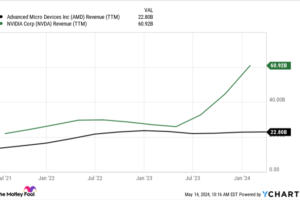
Amazon’s recent announcement of their new unlimited medication delivery subscription offers hope for a convenient and affordable online option for buying medicines in the US. In Africa, the pharmacy retail industry has already quietly been disrupted.
African online pharmacies such as MyDawa, AddPharma, and myMedicines, as well as online storefronts of many brick-and-mortar pharmacy chains like GoodLife and HealthPlus, have brought traditional pharmacy retail into the modern world of e-commerce. Significant funding has flowed, with MyDawa leading the pack at over $9 million raised to date. Investors are hoping to cash in on the 34% of Africans who are active e-commerce users.
Read more
These retailers have successfully built full-service outlets for high-cost and low-cost conditions alike, defined opportunities for cooperation with pharma distributors, and embraced low-tech ways to make their services as convenient and instantaneous as possible.
Amazon Pharmacy vs African pharma startups
African e-pharmacies have resisted discriminating between low-dollar urgent treatments and higher value medicines for chronic conditions. The strategy of Amazon Pharmacy to focus solely on long-term medications promises maximized profits but misses the larger customer need, one that is critical for customer acquisition.
According to Abimbola Adebakin, founder and CEO of Nigerian e-retailer myMedicines, “Our approach was to bridge a gap for anyone who needed medication, and we have a lot of needs in Nigeria for acute conditions. It is the higher-hanging fruit but more dire need in less developed countries.” MyMedicines and its counterparts offer urgent drugs like antibiotics, antivirals, and anti-inflammatory medicines available within hours.
Offering medications for acute conditions is an important way to motivate customers to try online pharmacies for the first time. The need for medicines delivered to consumers’ doors becomes critical when customers are ill and need medicines quickly without leaving home. “Many people come to us through an urgent need, and after they try our system, they stay with us,” Adebakin adds.
Pharmaceutical distributors
Worldwide, pharmaceutical distributors play a role in the long journey from manufacturer to consumers. While Amazon has done little to clarify how they will contend with the distributor giants, African players have begun to divide up the value chain, with an emphasis on cooperation over competition.
Online pharmacies determine the basket of goods that is in-demand with customers, with whom they have a direct relationship, and offer a convenient route to market for distributors. For Africure Pharmaceuticals, one of the largest players with manufacturing sites and distribution capabilities across sub-Saharan Africa, “Wherever we manufacture and an e-pharmacy is set up, there is a potential for cooperation” says CEO Sinhue Noronha. “Where they are willing to take on our products, we will get much more visibility in the market.”
These types of partners can also guarantee manufacturer discounts and product access. “The e-pharmacy that is picking up our product is picking up a registered product in that country. And if it is manufactured in-country, they can be sure of a complete supply chain process without hiccups. If you’re bringing in products made in India or China, there is the question of delivery and supply chain problems,” adds Noronha.
Prescription verification
Another challenge in moving retail pharmacy online is prescription verification. Despite the temptation to digitize a manual, error-prone method of capturing doctors’ orders with pen and paper, African e-pharmacy startups have built on top of it. They recognize the customer journey can be partly off-line and still more efficient, especially when end-to-end digitization would require reimagining a centuries-old practice. Most sites simply require a photo upload of a paper prescription, with live help via WhatsApp for questions and troubleshooting.
Amazon Pharmacy has arguably made the process high-tech to a fault. Patients select the provider or pharmacy that holds their prescription and Amazon does the legwork to contact them and transfer the prescription. However, the process is opaque and far from instant, undermining the simplicity that online buying is meant to offer.
Building an online pharmacy business in Africa is undoubtedly simpler than in the US, with its healthcare industry complexity. Pharmacy benefit management middlemen, manufacturer discounts, insurance formularies and competition from existing mail order pharmacies introduce plenty of distractions from the premise of moving pharmacy transactions online.
Patient-centric focus
But savvy businesses recognize the most compounded problems are often not the ones to solve first. African online pharmacies chose an unambiguous goal— delivering medicines to patients quickly and conveniently using an online platform—and delivered on it. This clarity of focus underlies their success and is a reminder of the importance of patient centricity amid market complexity.
African startups have disrupted retail pharmacy with their unrelenting focus on improving the patient experience and their recognition of market conditions to work around. Amazon and other players in the US have yet to master these principles despite their experience and size. The continent largely ignored by Amazon’s existing business might soon give rise to their largest competitive threat in the online pharmacy market.
More from Quartz
Sign up for Quartz’s Newsletter. For the latest news, Facebook, Twitter and Instagram.
Click here to read the full article.
















Add Comment